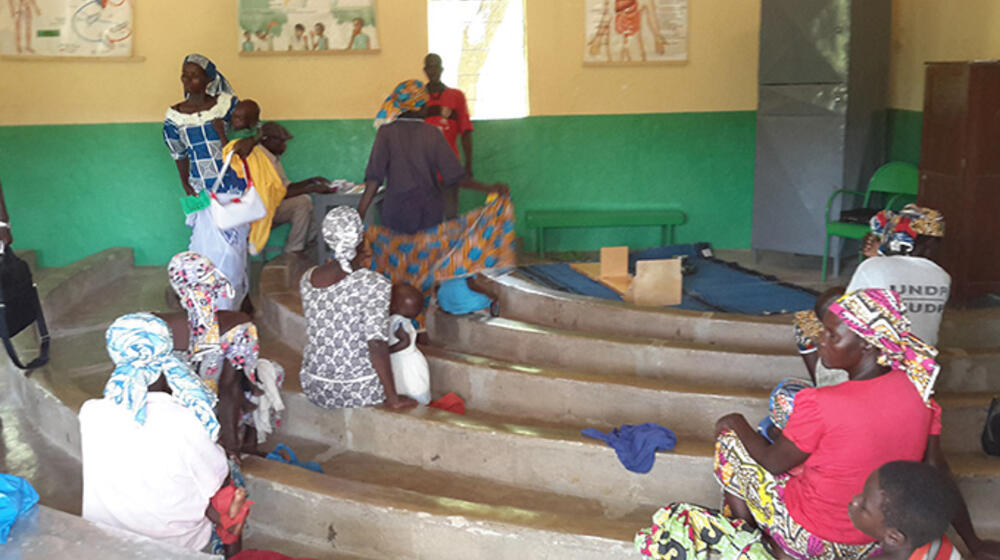Understanding the implications and risks of the coronavirus in general and on women and girls and other vulnerable populations, in particular, is amongst some of the steps needed in flattening the curve. Since the outbreak of COVID19, we have witnessed a complete lack of attention on the effects on women's and adolescents' wellbeing. In monitoring the situation as well as following official announcements from W.H.O and our state officials – in particular the Minister of Health, we note with regret that the burden of COVID19 has many times felt on women and girls yet remains the less reported. Women are the ones serving as caregivers - at their homes, in the communities or hospitals in their roles as nurses. They are the ones most exposed at risk of getting coronavirus virus and equally being victims of violence during such times of crisis. The reason a careful analysis of the impacts of COVID19 is critical in informing the policies in combating coronavirus.
In other to keep abreast, we subscribed to regularly receive updates on the current state of COVID19 in the country and the different precautionary measures to stay safe. Some of which we have shared across our different contacts and listserv. Added to that we have initiated free online webinars that bring in experts across different sectors including from the medical field to share important safety tips and advice on how to stay safe during such hard times. All these seek to complement the laudable initiatives from all the stakeholders working restlessly, especially the government through the Ministry of Health in ensuring that the health and wellbeing of the people are safeguarded and secured.
However, while the coronavirus might be a threat to global public health, it is important to realize that for women and girls, the threat is in multiple forms; As it further exposes women and adolescent girls to gender-based violence notably domestic and sexual violence, including intimate partners’ violence (IPV).
Worldwide 1 in 3 women suffer from some form of intimate partner violence and in Cameroon statistics suggest that 1 in 2 women have been physically or sexually abused by an intimate partner. While data remains a huge challenge around IPV because of many barriers including the culture of silence, cultural norms that impede on access to justice and imagine this is in a non-crisis or humanitarian settings. With COVID19, and all the lock-downs and shutdowns of offices, schools, parks, shops as well as mobility restriction and the many other restrictive measures put in place to curb the rapid spread of COVID19, there is a high tendency that many cases of gender-based violence would be experienced especially as many of these shutdowns cases didn’t have to go through a sort of proper transitional processes, with sufficient education, information, and counseling to psychologically prepare for this sudden twist and shift in lifestyles. And thus not only exposing women and her entire family at risk of getting infected by COVID19 but also victims of domestic and sexual violence.
As a feminist organization working for and with young people to address gender-based violence as well as building leadership and development capacities, we call on all stakeholders during such crisis moment to see that policies and measures that seek to combat coronavirus in Cameroon must be holistic and comprehensive as it must provide the relevant support to women and girls at risk of violence during this crisis moment.
Research shows that the side effects of violence against women and girls especially IPV range from depression, HIV/AIDS infections, unwanted pregnancies, severe physical harms or even end up being deadly. And we cannot emphasize enough the implications of COVID19 on women and girls including the internally displaced persons as well as host communities and families, many of whom are living under the most unhygienic and unsafe conditions with little access to proper quality medical support, sanitation, potable water, and other essential services.
While this is such a crucial moment that meets Cameroon, more than ever, we must not forget that gender-based violence remains a national emergency that must equally be addressed especially now. This is because the rapidly changing preventive and reactive measures considered by the state to manage the spread of the coronavirus, which includes but not limited to self-isolation, and home staying will offer welcome tools for domestic violence to further escalate, and equal increase women reproductive and caregiving role. Therefore, such measures must be accompanied by gender-responsive support for victims and survivors of violence.
In such unprecedented times, we also call on all to be cautious, calm and follow the guidelines provided by the health professional and experts including that from the World Health Organization (W.H.O). However, to also recognize that in difficult times like these, information is always generic and doesn’t necessarily underscore gendered implications especially the impact on women and girls including nursing mothers.
At Women for a Change (Wfac), we equally urge the government and policymakers, in particular, to take concrete steps to ensure the protection of women and girls from gender-based violence is integral to government’s COVID-19 preventions and control measures. We call on all relevant stakeholders, most importantly, gender organizations, women’s rights activists, and financial partners to increase support to women, girls and most vulnerable throughout this crisis period.
Lastly, Wfac also commits to continue to share with all the right information and relevant resources to help you all – especially women and girls stay safe and together let’s beat COVID19.
....
stay connected with me on twitter at: https://www.twitter.com/zofem (@ZoFem)
https://www.instagram.com/zofem









